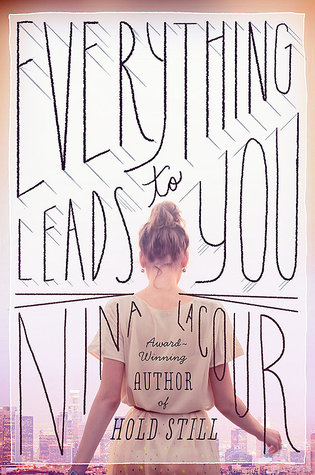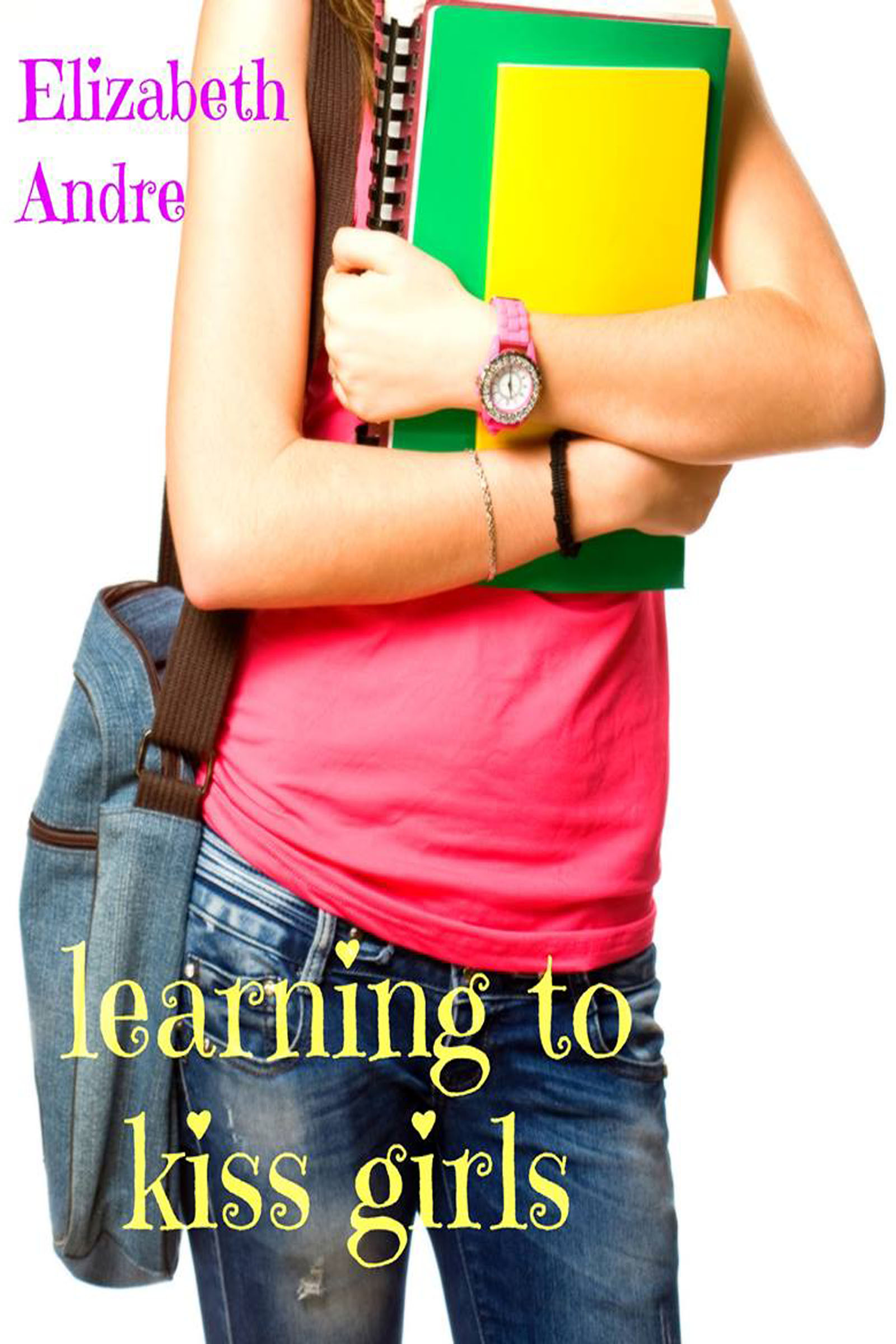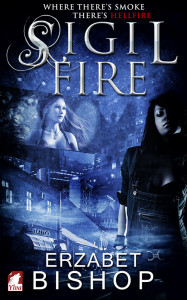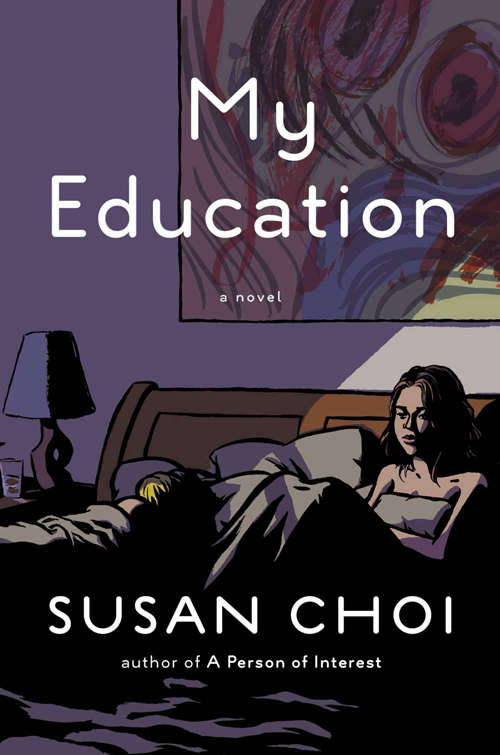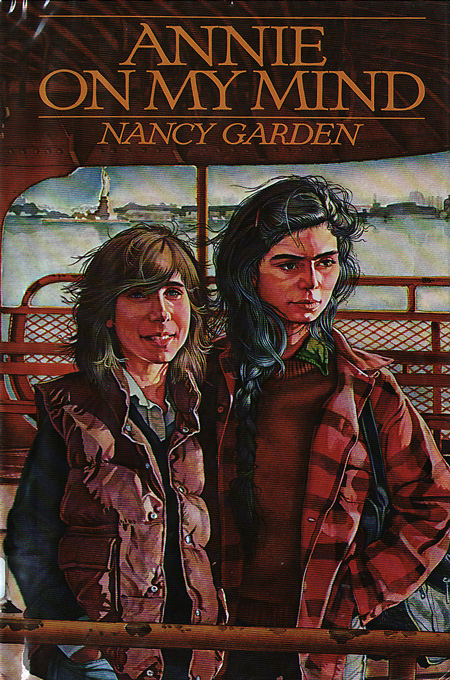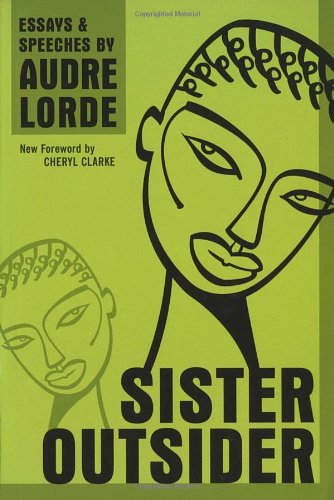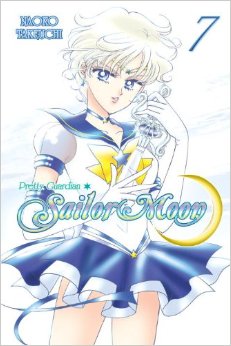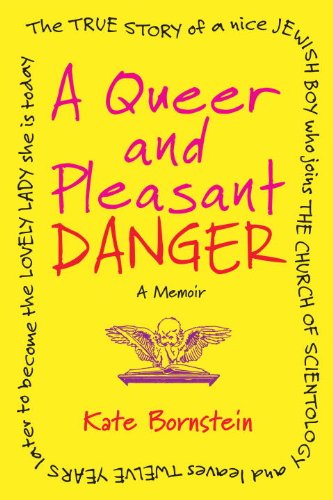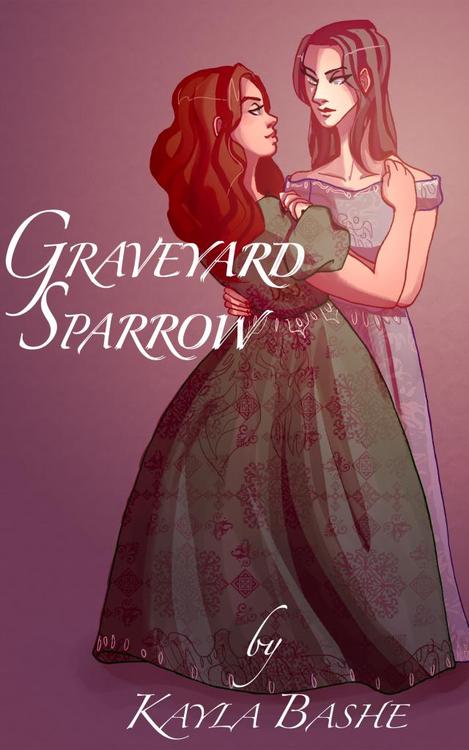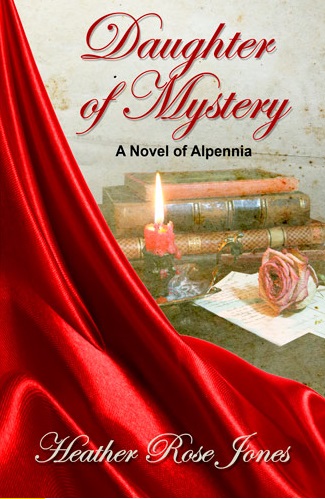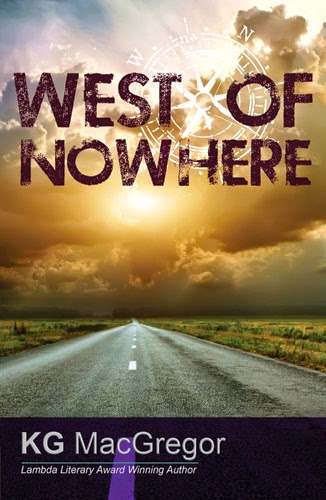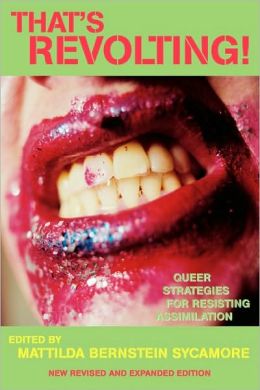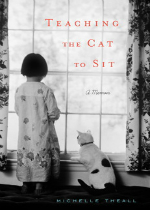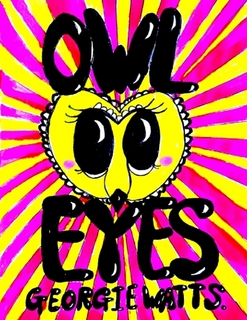I heard a lot about this book before its release in May, so I made sure to place my hold on it as early as possible and eagerly anticipated its arrival. Having not read Hold Still or The Disenchantments, I was not sure what to expect from Nina LaCour – but I’m happy to say that Everything Leads to You definitely lived up to the hype.
Best friends Emi and Charlotte have just graduated high school in Los Angeles when the book begins. Toby, Emi’s older brother, who works in the movie industry, is going abroad for the summer and leaves the girls his apartment as a graduation present. His only stipulation is that something epic takes place there while he is away – not a massive party, but something even more amazing.
Toby has also secured summer jobs for the girls at the studio he works for (although it is clear that Emi has established herself as a talented set dresser already and is working her way up the production ladder). One morning, Charlotte is at an estate sale in search of props and set pieces, when she realizes she is at the home of Clyde Jones, a John Wayne-esque actor who has recently died. Star-struck, the two girls purchase some of Jones’ belongings for themselves, including a Patsy Cline record with a mysterious letter hidden inside. The contents of the letter lead them on a hunt for the recipient of Jones’ inheritance, exposing the personal life of an actor who avoided the spotlight outside of his film endeavors… and, ultimately, allowing them to fulfill Toby’s wish of having something great happen in his apartment.
Emi is an entirely lovable, hard working and passionate teenager with a sincere love of the movies and her role in making them. She acts mature beyond her years in the job realm; while most people her age have a stereotypically mundane summer job, she is pursuing her dream career path. What is refreshing about Emi is that she takes the leap in accepting a job as a production designer, even when it seems more than a little bit beyond her experience. In this way, Emi is a wonderful role model for young female readers, forging her path in an industry that isn’t always seen as the friendliest to women.
While all of this is wonderful, I have to point out that I was more than a little skeptical of her ability to snag such a position right out of high school. Any reader will have to employ some serious suspension of disbelief as they watch Emi fall into situations that only the most privileged teenager could encounter.
Though her job is quite unrealistic, readers are drawn into the story because we believe Emi is a truly talented artist with a keen eye. The “collapse of the fantasy” concept often comes up in Emi’s narration, as she muses about how both the movies and the great mysteries of people’s lives become less enticing the more you learn about them. But even knowing that Emi’s job situation (and, in fact, the entire plot) plays out a bit too perfectly, we are still compelled to read with the same enthusiasm. The experience of reading LaCour’s story is similar to that of watching a movie – even though we know that both are fabrications of a person’s mind, even though we know that each paragraph and prop are intentionally placed – we still read and watch just as eagerly as if it were happening in real life.
Of course, Emi has some romantic situations throughout the novel, which I will try to keep mostly a secret so as not to ruin the mystery. In any event, Emi matter-of-factly talks about her sexuality from the very beginning, as she attempts to get over her ex-girlfriend, Morgan, who also works on the same set. The wonderful thing about having already established lesbian characters is that it allows the plot to be about more than just sexuality. In doing this, LaCour can write a young love story uncomplicated by the coming-out process, something that is still rare in YA fiction.
LaCour’s up-front writing of Emi’s sexual orientation is just one example of how she casually incorporates diversity into the novel. Further on in the story, one character meets Emi’s parents and discovers that she is mixed-race, a fact that he had never really considered, and that she didn’t deem it necessary to mention. While I love that this was a surprise (I am somewhat embarrassed to say that I did not originally pictured Emi as anything other than white), I do wish LaCour had unpacked Emi’s identities a bit more. Older readers may be more equipped to recognize the implications of Emi’s privilege on her nonchalance regarding her race/sexuality (both of her parents are professors, so she grew up in both a financially stable and intellectually progressive household), but younger readers may not entirely get the subtlety.
Overall, I would highly recommend this incredibly sweet and super intriguing story to a variety of readers. Not only did I love the combination of romance and mystery, but I was really captivated by the descriptions of Emi’s design work, and I will be sure to pay extra attention to the set and props when I watch a film in the future.

